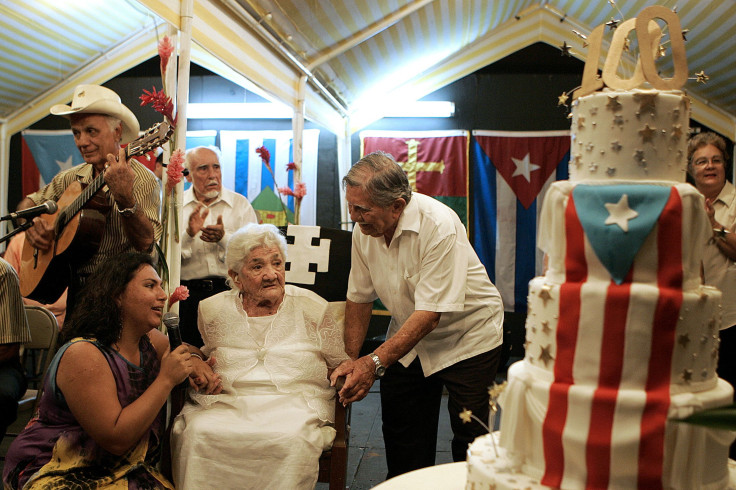
Boricuas are the hardest at hearing, according to a recent and far-reaching study funded by the National Institutes Of Health (NIH). The study tested the hearing of 16,400 Latinos between ages 18-74, exposing them to sounds of different tones and pitches. Subjects were considered “affected” if they couldn’t hear sounds at 25 decibels, between the humming of a refrigerator and the sound of a person breathing. Hearing loss past 25 decibels doesn’t just force abuelitas to turn up the TV. According to James F. Battey, director of the NIH’s National Institute on Deafness and Other Communication Disorders (NIDCD), even mild deafness can hurt daily life interactions.
“Hearing loss can affect a person’s overall quality of life, and has been linked to depression and dementia in older adults,” Battey says, in a statement released by the NIH. “This study paints a detailed picture of hearing loss among a large and diverse group of Hispanic/Latino participants, and could help inform the development of intervention strategies to meet the needs of this growing population in the United States.”
The study found that 1 in 7 Latinos (15 percent) suffered hearing loss, about the same rate as the national average. However, that rate varied amongst different sub-categories of Latinos, who self reported in the study to indicate Central American, Cuban, Dominican, Mexican, Puerto Rican and South American heritage. Puerto Ricans were the most likely to be affected by hearing loss. More than 21 percent had hearing loss in one ear and more than 12 percent in both ears. Chicanos were the least likely, with about 11 percent having hearing loss in one ear and 6 percent suffering in both ears. The study, a collaboration of multiple authors representing 9 universities, was published in JAMA Otolaryngol Head Neck Surgery. While age was the strongest factor in hearing loss, there are other factors as well.
“Hearing impairment is a common problem for older Hispanics/Latinos in these communities and is associated with socioeconomic factors, noise exposure, and abnormal glucose metabolism,” the study concluded.
The study found that risk factors for the average Latino are similar to those of the general U.S. population. Predictably, hearing impairment was highest among the elderly, five times as likely among 45-to-65-year-olds than 18-to-44-year-olds. Here are some more surprising findings from the study.
Men were two-thirds more likely to suffer from hearing loss.
Diabetics and prediabetics had increased odds of hearing loss -- 57 and 37 percent, respectively.
Education level: high school graduates are 30 percent less likely to have hearing loss.
Income level: people earning more than $75,000 per year were 42 percent less likely than those those earning less than $10,000.
How Can I Support A Friend Or Family Member With Hearing Loss?
According to the NIH, there are a number of ways people can mitigate the social impact of hearing loss. Members of bilingual communities might find that some of these strategies are similar to those of communication with non-native English speakers.
- In a group, include people with hearing loss in the conversation.
- Find a quiet place to talk to help reduce background noise, especially in restaurants and at social gatherings.
- Stand in good lighting and use facial expressions or gestures to give clues.
- Face the person and speak clearly.
- Speak a little more loudly than normal, but don’t shout.
- Speak at a reasonable speed.
- Do not hide your mouth, eat, or chew gum while speaking.
- Repeat yourself if necessary, using different words.
- Try to make sure only one person talks at a time.
- Be patient. Stay positive and relaxed.
- Ask how you can help.
Authors of the NIH study include: Karen J. Cruickshanks, PhD; Sumitrajit Dhar, PhD; Elizabeth Dinces, MD, MS; Robert C. Fifer, PhD; Franklyn Gonzalez II, MS; Gerardo Heiss, MD, PhD; Howard J. Hoffman, MA; David J. Lee, PhD; Marilyn Newhoff, PhD; Laura Tocci, AuD; Peter Torre III, PhD, MS; Ted S. Tweed, MA
© 2025 Latin Times. All rights reserved. Do not reproduce without permission.



